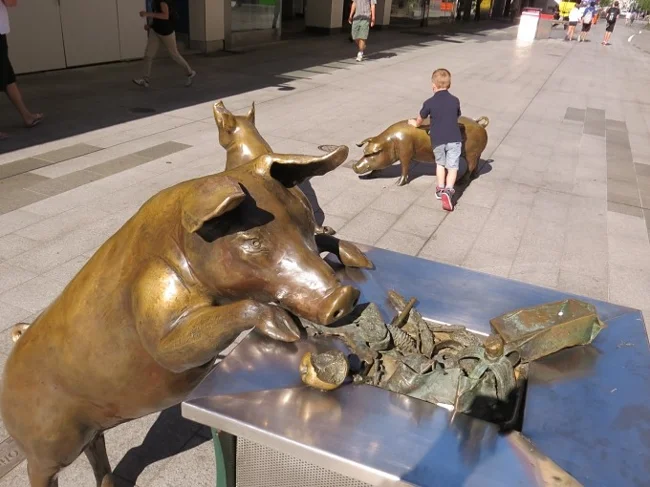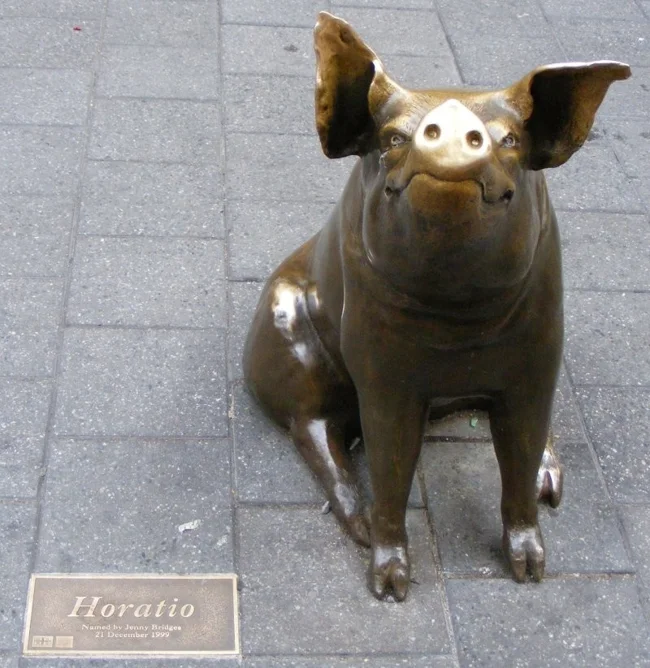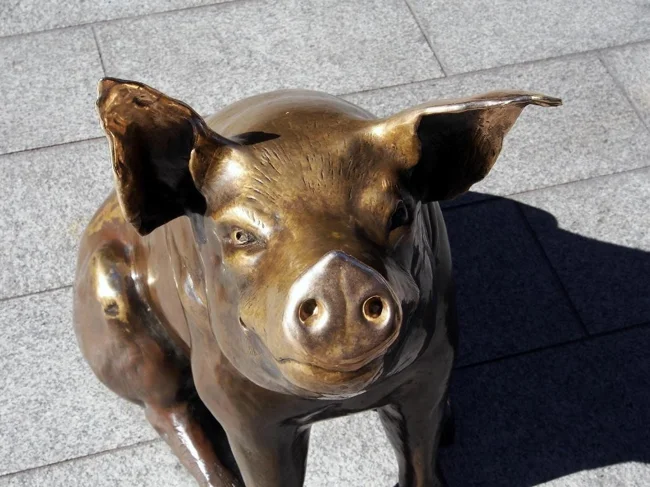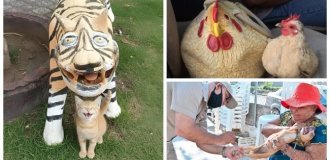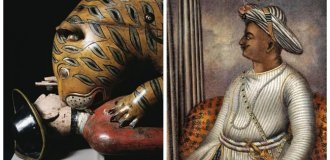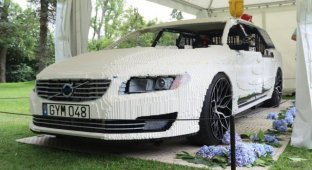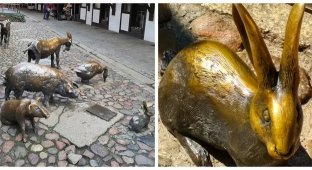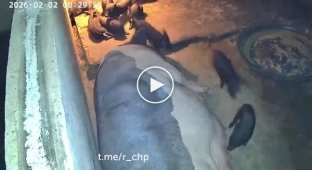“A day in nature” and unity with people (9 photos + 1 video)
These fun bronze sculptures look whimsical and cute on the pedestrian mall. 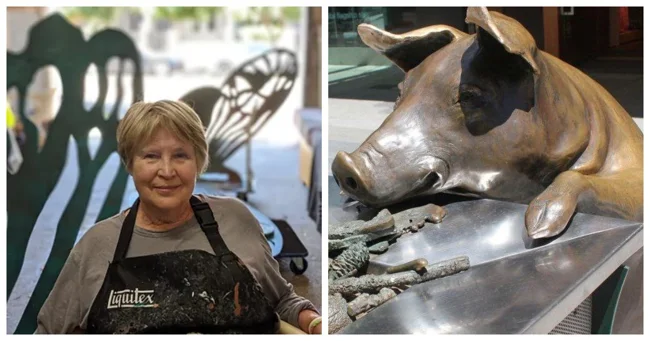
From the looks of these four life-size bronze pigs, they're really having a great day. One piggy buried his face in the trash can, happily bronzed from a crumpled carton of milk, an orange peel, a half-eaten banana and an apple core. Another pig sits with his impressive half-buttocks comfortably placed on the sidewalk. And another one rushes to join in the general fun. All the piglets literally shine from the loving hugs and strokes of children and passers-by. 
Positive public reaction to the pigs after the sculpture was unveiled by Lord Mayor Dr Jane Lomax-Smith on 3 July 1999 prompted Adelaide City Council and the Advertiser to hold a competition to find the best names. A sign next to each animal shows its name and the person who named it: Sarah Chan named the standing pig Oliver; Sam Andt named the lucky pig Truffle; Dorothy Arnold chose the name Augusta for the sniffing pig; Jemmy Bridges named the sitting pig Horatio.
Sculptor 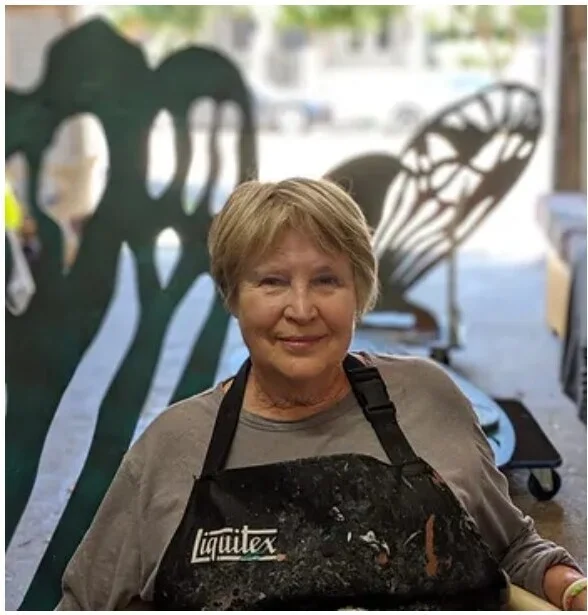
Margarita Derricourt
Marguerite Derricourt was born in South Africa and moved to Sydney, Australia. In her many works she demonstrates an affinity for animals. When asked why she decided to create a group of pigs - seemingly not the most attractive animals, Derrycourt answered the following:
There is a long history of using animal figures in urban sculpture, which reflects their importance to our society. I decided to sculpt pigs because I was captivated by their shapes and roundness, especially when they are made of such a beautiful and durable material as bronze. I really want people to touch them and interact with them. 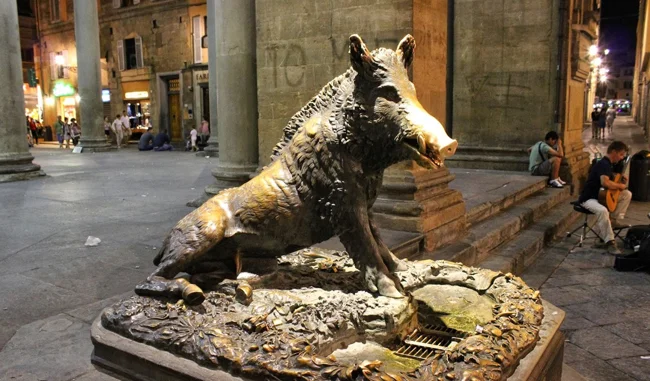
Porcellino in Florence
Derrycourt was also partly inspired by the famous bronze boar from Florence, "Il Porcellino". This symbol of the city was installed in 1612, and its face has also been polished to a shine by locals and tourists. 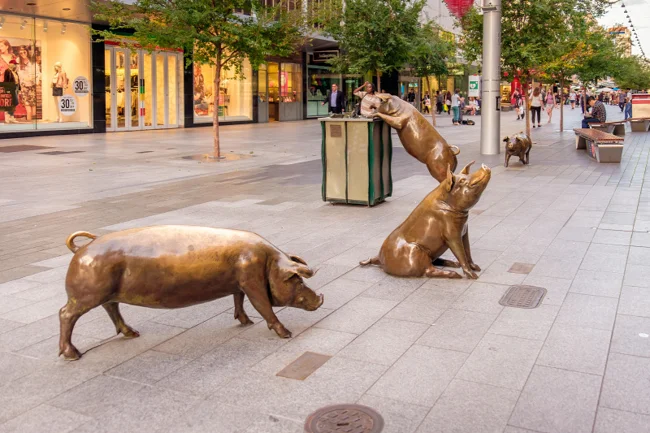
In Adelaide, there were initial concerns about the potential health risks for children who enjoy climbing on the sculptures, as well as the protruding tail of one of them. Modifying Oliver's tail eliminated this danger. Both parents and children continue to enjoy sitting on the pigs and petting them during walks. 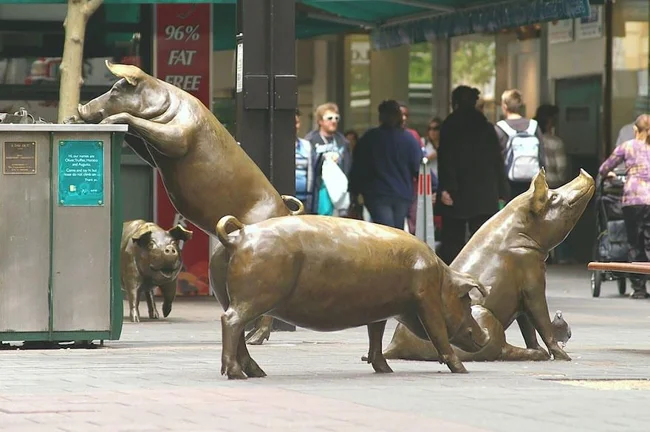
Although the installation of the composition, which also became a tourist beacon, was preceded by controversy and doubts, now there is no question of them. Moreover, the Pyatochka ones, located near a large shopping center, also became a good joke on swine consumerism. 